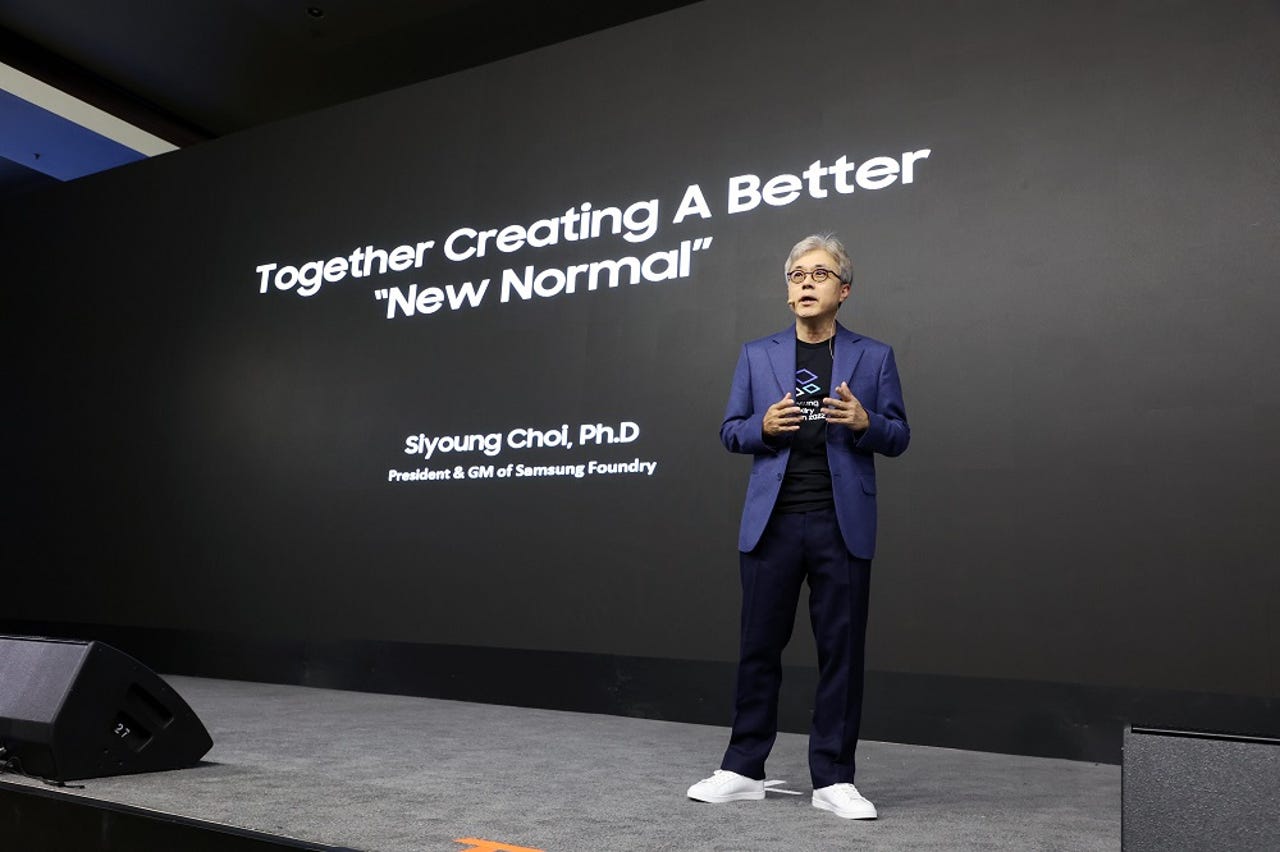
































Dr. Siyoung Choi, president and head of Foundry Business at Samsung Electronics, giving his keynote speech at Samsung Foundry Forum 2022.
Image: SamsungSamsung on Tuesday laid out a plan to ramp up its production of advanced semiconductors, aiming to mass-produce 1.4-nanometer (nm) chips by 2027. The tech giant is working to meet the demand for cutting-edge chips for high-performance computing, AI, 5G, 6G, and automotive applications.
Earlier this year, Samsung started mass-producing chips using its 3-nanometer process node, its most advanced technology yet for contract chip production. It plans to introduce a 2nm process in 2025.
On top of that, the company plans to expand its production capacity for the advanced nodes by more than three times by 2027 compared with this year. By 2027, Samsung expects non-mobile applications -- like HPC, automotive, and 5G applications -- to make up more than half of its foundry portfolio.
Also:FBI warns: Beware of fake batteries. Here's what to look for
Samsung plans to improve its gate-all-around (GAA)-based 3nm process support for HPC and mobile chips. The company also plans to diversify the 4nm process specialized for HPC and automotive applications.
Back in August, Samsung said it will spend 20 trillion won, approximately$15 billion, by 2028 to build a new advanced chip research complex in South Korea. The global chip shortage of the past couple of years has been a boon to Samsung's chip division, as customers stacked up inventory. The company's chip division accounted for two-thirds of its operating profit during the second quarter this year. Samsung also noted at the time that in foundry, or contract chip production, it saw its highest revenue for the quarter thanks to improved yield rates.
 Tags chauds:
technologie
informatique
Tags chauds:
technologie
informatique